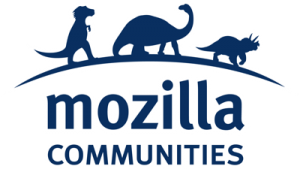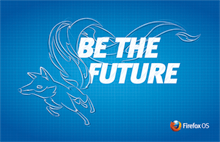Contribute/Recognition: Difference between revisions
No edit summary |
No edit summary |
||
| (59 intermediate revisions by 8 users not shown) | |||
| Line 1: | Line 1: | ||
__NOTOC__ | |||
{{Contribute_nav_bar}} | |||
<section begin=summary />{{RoadmapSummary | |||
|icon=Logo_0002_68.png |64 px | |||
|pagelocation=Contribute/Recognition/draft | |||
|pagetitle=Recognition at Mozilla | |||
|owner=Community Building Team | |||
|updated=May 8, 2014 | |||
|description=We should all be recognized. We should all be recognizing. | |||
}}<section end=summary /> | |||
{{admon/note|Looking for the tools?|If you want to see the actual tools you can give to your community for recognition at Mozilla, the [[Contribute/Recognition/Toolkit|Recognition Toolkit]] is what you're looking for.}} | |||
== | =<div align="center"> Recognition at Mozilla: A Working Guide </div>= | ||
<div align="center"> The skill of acknowledgement is a statement of a person’s best qualities. It is more than just a compliment. You are observing and stating qualities that the person has that allow them to accomplish something. It is more about who the person is then what they have done. An acknowledgment might sound something like: ‘You are truly committed to a high level of excellence.’ Or ‘You are passionate about what you do.’ Or ‘Your persistence and focus have ensured that this project get done – despite all the obstacles that might have discouraged you.<br> | |||
Taken from TRIBE:Awareness of Self https://wiki.mozilla.org/People:TRIBE </div> | |||
__TOC__ | |||
=Recognition at Mozilla is Mission-Based= | |||
Recognition is different from rewards. While recognition is the act of acknowledging that something has happened, or that an action has already been taken, rewards are thing used to motivate people to take an action. | |||
''People do not contribute to Mozilla for rewards. ''' People contribute to Mozilla because they believe in our Mission.''''' | |||
= | =People Contribute for Three Reasons= | ||
According to social science, people contribute for: | |||
[[File:Mozilla communities.png|thumbnail|right|Mozilla Community Logo]] | |||
* | *autonomy (the need to direct our own lives) | ||
* | *mastery (to learn and create new things) | ||
* | *purpose (to do better by ourselves and our world in some way) | ||
We recognize what people contribute to the project as a way to acknowledge that they have taken actions that have impact on our community, on us, and on our project. We recognize them in appropriate ways that grant autonomy, show that they have achieved mastery and that we share a common purpose. | |||
Recognition creates cultural identity around a project. It allows us to tangibly illustrate to people that they are part of the project, and identify that they make an impact as part of the group. | |||
Our concept of motivation at Mozilla is drawn from Dan Pink's book ''Drive: The Surprising Truth About What Motivates Us,'' [http://www.ted.com/talks/dan_pink_on_motivation/ which he has conveniently summed up in this 18 minute Ted Talk.] | |||
== | ==We Should All Be Recognizing== | ||
<big> | |||
We should all be recognizing. We should all be recognized.</big>'' | |||
The responsibility of ''seeing'' other people for their accomplishments, the impact they have made, and the work that they do belongs to all of us. | |||
It's easy to leave it to people in "power", but that underestimates our own ability to make a difference in the lives of the community that runs and supports this project. | |||
= | =Recognition Toolkit= | ||
Recognition at Mozilla can take on many different forms. Please go to the [[Contribute/Recognition/Toolkit|recognition toolkit]] in order to see the different ways that Mozillians around the world are recognizing. | |||
= | =Recognition in Different Cultures= | ||
Recognition | We are a global organization and must realize that different cultures recognize people in different ways. | ||
We are still building resources around this topic, but below are some takeaways from sessions we've had. | |||
==Certain Forms of Recognition Don't Work for Everyone== | |||
<big>''We need to be culturally sensitive and know our communities''</big> | |||
[[File:Community-thebolt-future.png|thumbnail|left|Be the future of Community]] | |||
*Public exposure can be awkward for certain contributors. Some people are private | |||
*Try to communicate in a way that's appropriate to the culture you've working in. Don't be overly excited if the situation doesn't call for it. | |||
*Think about the kinds of swag that you send to people. Realize that a tshirt in some places is considered identity, while other contributors are tired of getting the same stuff. Send swag appropriately, and don't overdo it or underdo it. (see Contribution Toolbox for more on swag) | |||
*Be transparent and communicate out the way people can take on new roles and new privileges in the community. Be consistent in your "asks." | |||
*Offering Mentoring can be a good way to include and recognize community members - showing people that you consider them someone you want to spend time with | |||
See references and resources guide at the bottom for etherpads and notes about the ways we recognize in different cultural contexts. | |||
=Resources, Guides, Archived Materials= | |||
* [https://cbt.etherpad.mozilla.org/WaystoRecognize Ways to Recognize] | |||
* [https://cbt.etherpad.mozilla.org/RecognitionMozillians Recognizing Mozillians] | |||
* [https://cbt.etherpad.mozilla.org/recognition-20meeting-20notes Meeting notes from Recognition Working Group] | |||
* [https://cbt.etherpad.mozilla.org/recognition-goals Recognition Plan Q1 2014] | |||
* [https://cbt.etherpad.mozilla.org/2013-meetup-track-recognition 2013 Community Building Recognition Track] | |||
* [https://etherpad.mozilla.org/recognition-guide-sc Recognition Guide from Santa Clara] | |||
* [https://etherpad.mozilla.org/contributor-recognition-brainstorm MozCamp Asia Recognition Session] | |||
* [http://www.iloveopensource.io/ I love open source for developer recognition] | |||
* [http://opensource.com/life/12/3/blue-drop-awards-community-recognition-open-source-way Drupal's Blue Drop Awards] | |||
* [http://economics.mit.edu/files/3023 MIT Paper on the Dynamics of Open Source Communities] | |||
* [http://jonobacon.org Jono Bacon writes a lot about open source and recognition] | |||
[[Category: Contribute]] | |||
[[Category:Recognition]] | |||
Latest revision as of 21:23, 22 September 2014
 Main
|
Resources
|
Working Groups
|
Get Involved Main Page
|
Team
|
Maturity Model
|
Build Principles
Main
|
Resources
|
Working Groups
|
Get Involved Main Page
|
Team
|
Maturity Model
|
Build Principles
 |
Recognition at Mozilla | |
| Owner: Community Building Team | Updated: 2014-09-22 | |
| We should all be recognized. We should all be recognizing. | ||
Recognition at Mozilla: A Working Guide
Taken from TRIBE:Awareness of Self https://wiki.mozilla.org/People:TRIBE
Recognition at Mozilla is Mission-Based
Recognition is different from rewards. While recognition is the act of acknowledging that something has happened, or that an action has already been taken, rewards are thing used to motivate people to take an action.
People do not contribute to Mozilla for rewards. People contribute to Mozilla because they believe in our Mission.
People Contribute for Three Reasons
According to social science, people contribute for:
- autonomy (the need to direct our own lives)
- mastery (to learn and create new things)
- purpose (to do better by ourselves and our world in some way)
We recognize what people contribute to the project as a way to acknowledge that they have taken actions that have impact on our community, on us, and on our project. We recognize them in appropriate ways that grant autonomy, show that they have achieved mastery and that we share a common purpose. Recognition creates cultural identity around a project. It allows us to tangibly illustrate to people that they are part of the project, and identify that they make an impact as part of the group.
Our concept of motivation at Mozilla is drawn from Dan Pink's book Drive: The Surprising Truth About What Motivates Us, which he has conveniently summed up in this 18 minute Ted Talk.
We Should All Be Recognizing
We should all be recognizing. We should all be recognized.
The responsibility of seeing other people for their accomplishments, the impact they have made, and the work that they do belongs to all of us.
It's easy to leave it to people in "power", but that underestimates our own ability to make a difference in the lives of the community that runs and supports this project.
Recognition Toolkit
Recognition at Mozilla can take on many different forms. Please go to the recognition toolkit in order to see the different ways that Mozillians around the world are recognizing.
Recognition in Different Cultures
We are a global organization and must realize that different cultures recognize people in different ways.
We are still building resources around this topic, but below are some takeaways from sessions we've had.
Certain Forms of Recognition Don't Work for Everyone
We need to be culturally sensitive and know our communities
- Public exposure can be awkward for certain contributors. Some people are private
- Try to communicate in a way that's appropriate to the culture you've working in. Don't be overly excited if the situation doesn't call for it.
- Think about the kinds of swag that you send to people. Realize that a tshirt in some places is considered identity, while other contributors are tired of getting the same stuff. Send swag appropriately, and don't overdo it or underdo it. (see Contribution Toolbox for more on swag)
- Be transparent and communicate out the way people can take on new roles and new privileges in the community. Be consistent in your "asks."
- Offering Mentoring can be a good way to include and recognize community members - showing people that you consider them someone you want to spend time with
See references and resources guide at the bottom for etherpads and notes about the ways we recognize in different cultural contexts.
Resources, Guides, Archived Materials
- Ways to Recognize
- Recognizing Mozillians
- Meeting notes from Recognition Working Group
- Recognition Plan Q1 2014
- 2013 Community Building Recognition Track
- Recognition Guide from Santa Clara
- MozCamp Asia Recognition Session
- I love open source for developer recognition
- Drupal's Blue Drop Awards
- MIT Paper on the Dynamics of Open Source Communities
- Jono Bacon writes a lot about open source and recognition

